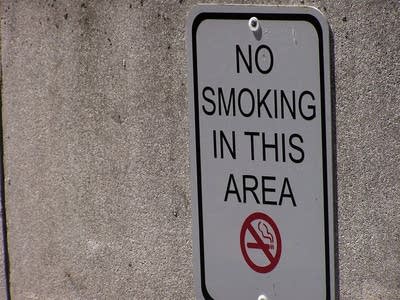Minnesota State University Moorhead bans tobacco
Go Deeper.
Create an account or log in to save stories.
Like this?
Thanks for liking this story! We have added it to a list of your favorite stories.

Minnesota State University Moorhead will ban tobacco use and sales on campus. The campus-wide smoking ban takes effect Jan. 1, 2008, and includes all university properties and vehicles. Altogether, 440 campus-owned acres are affected.
MSUM President Roland Barden says eliminating smoking is part of a campus effort to encourage healthy habits.

"For all of our students, we'd like them to understand that part of being a productive working professional is being a healthy person, and getting to work when you are expected to be at work and working productively when you are at work," said Barden.
Barden estimates about 20 percent of students, faculty and staff currently smoke.
Turn Up Your Support
MPR News helps you turn down the noise and build shared understanding. Turn up your support for this public resource and keep trusted journalism accessible to all.
Barden says the university will spend about ten-thousand dollars on signs around campus. Students and faculty will also be offered a program to help them quit smoking.
Susanne Williams, assistant to the president, says students, faculty and staff support a smoking ban.
"We're very excited with the direction our campus is taking," said Williams. She added, "In the end, all signs say that this is the direction we should go."
Williams says it will take some time to put the smoking ban in place.
"Part of being a productive working professional is being a healthy person."
"We know we are going to have to engage in very thorough, thoughtful educational campaigns during the fall semester to ramp up to the transition into the policy," Williams said. "That's why we made January 1, 2008 the implementation date, so we have the time to prepare the campus community for moving into that transition."
Williams said enforcement will rely on people telling smokers to put away their cigarettes, or calling on the student judicial system or campus security for help.
The smoking ban at Minnesota State University Moorhead is prompting a similar discussion at the University of Minnesota.
Dave Golden, public health director for Boynton Health Services at the U, says going entirely smoke-free is unusual for a large public school.
He says student surveys indicate smoking bans have a broader effect on behavior.
"Like what people allow at their parties, or at their own apartments or in their own cars," Golden said. "Our students are reporting a difference from even a year or two ago, due in part we think to the Twin Cities going smoke-free in bars and restaurants and other public places. They've changed. The culture around tobacco is clearly changing."
Golden says it will take time to develop a smoking ban for the sprawling U of M campus, but the process has started.
Golden says current surveys show only about 3.6 percent of students and faculty at the U of M smoke.
(The Associated Press contributed to this report)




